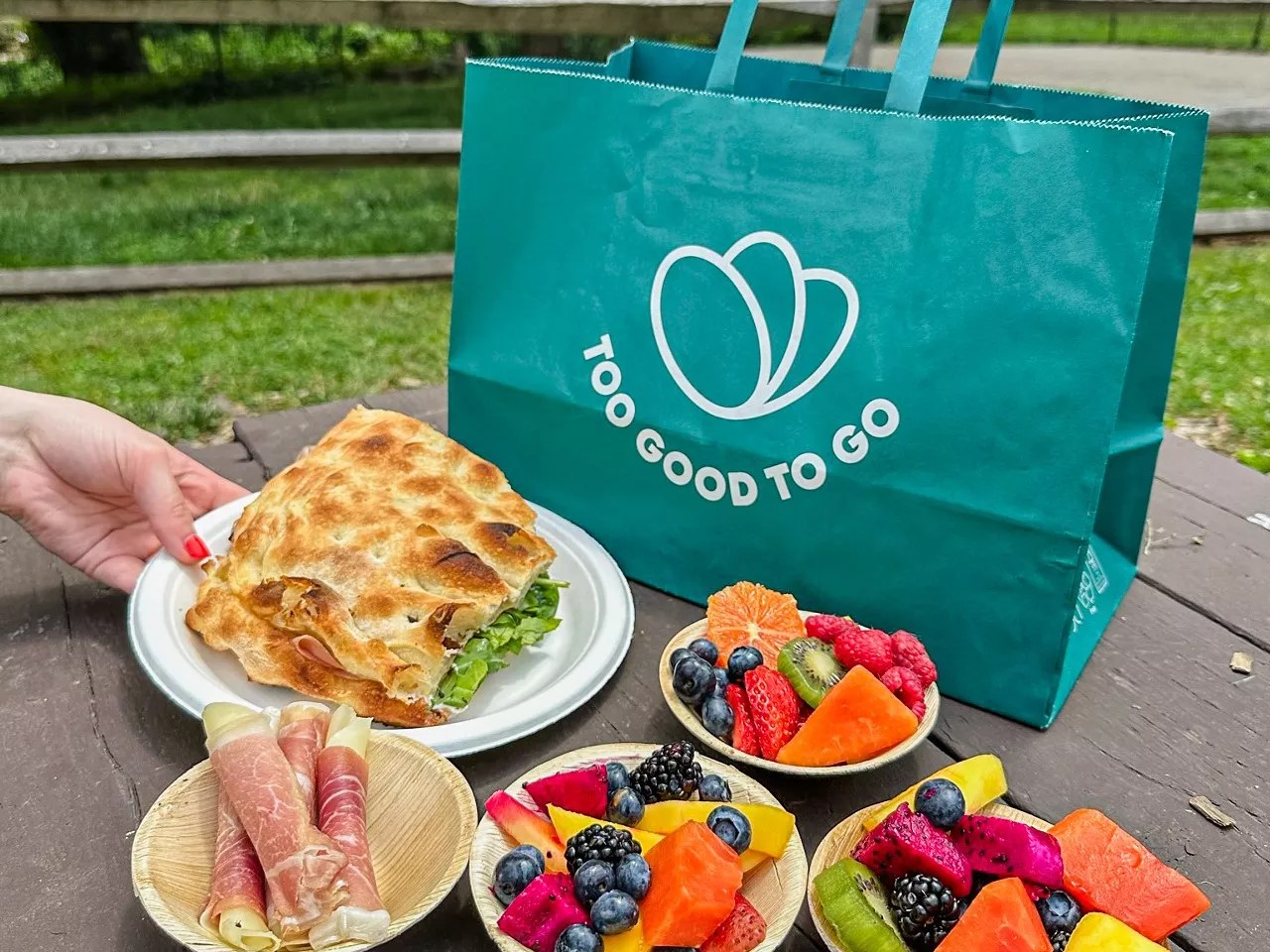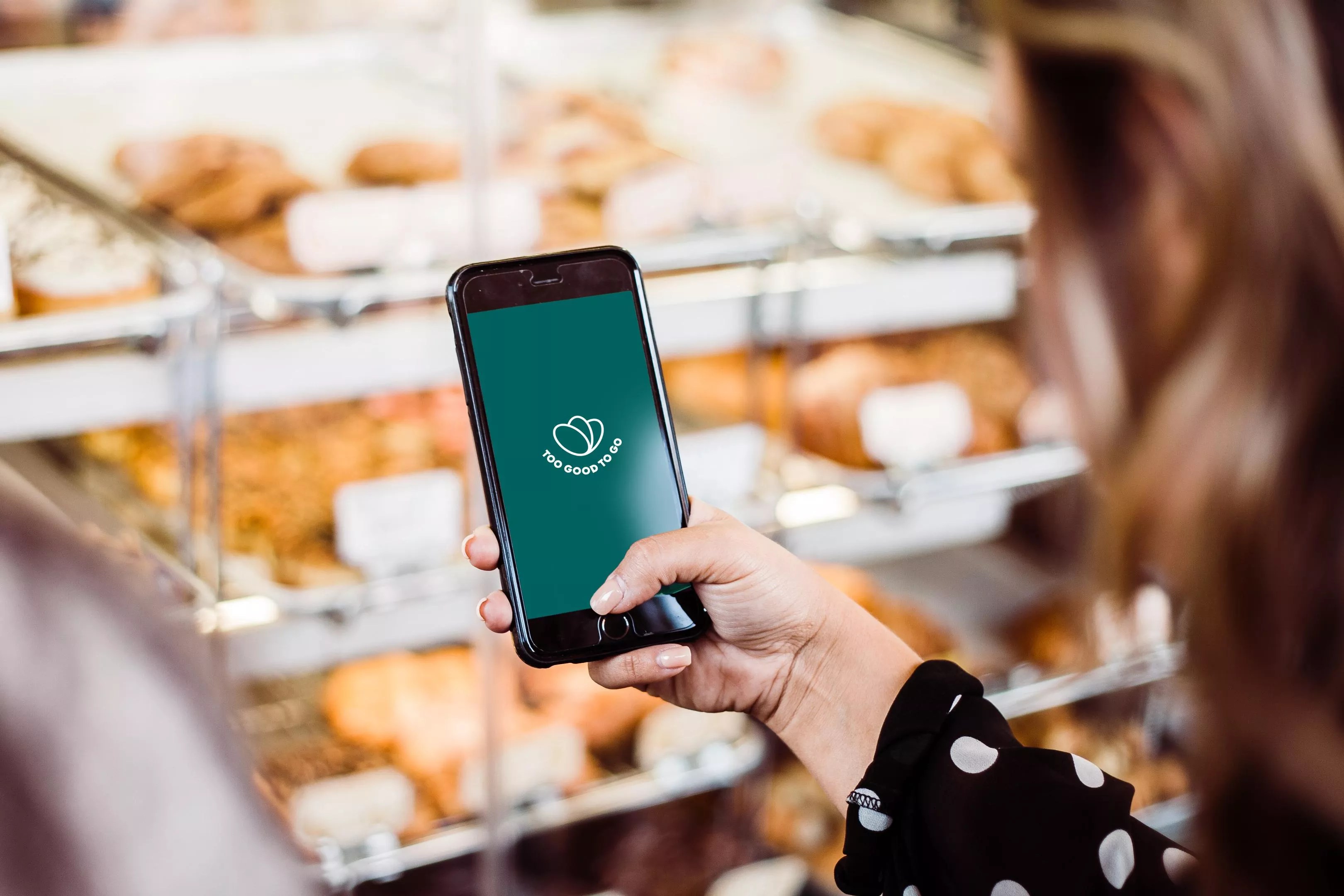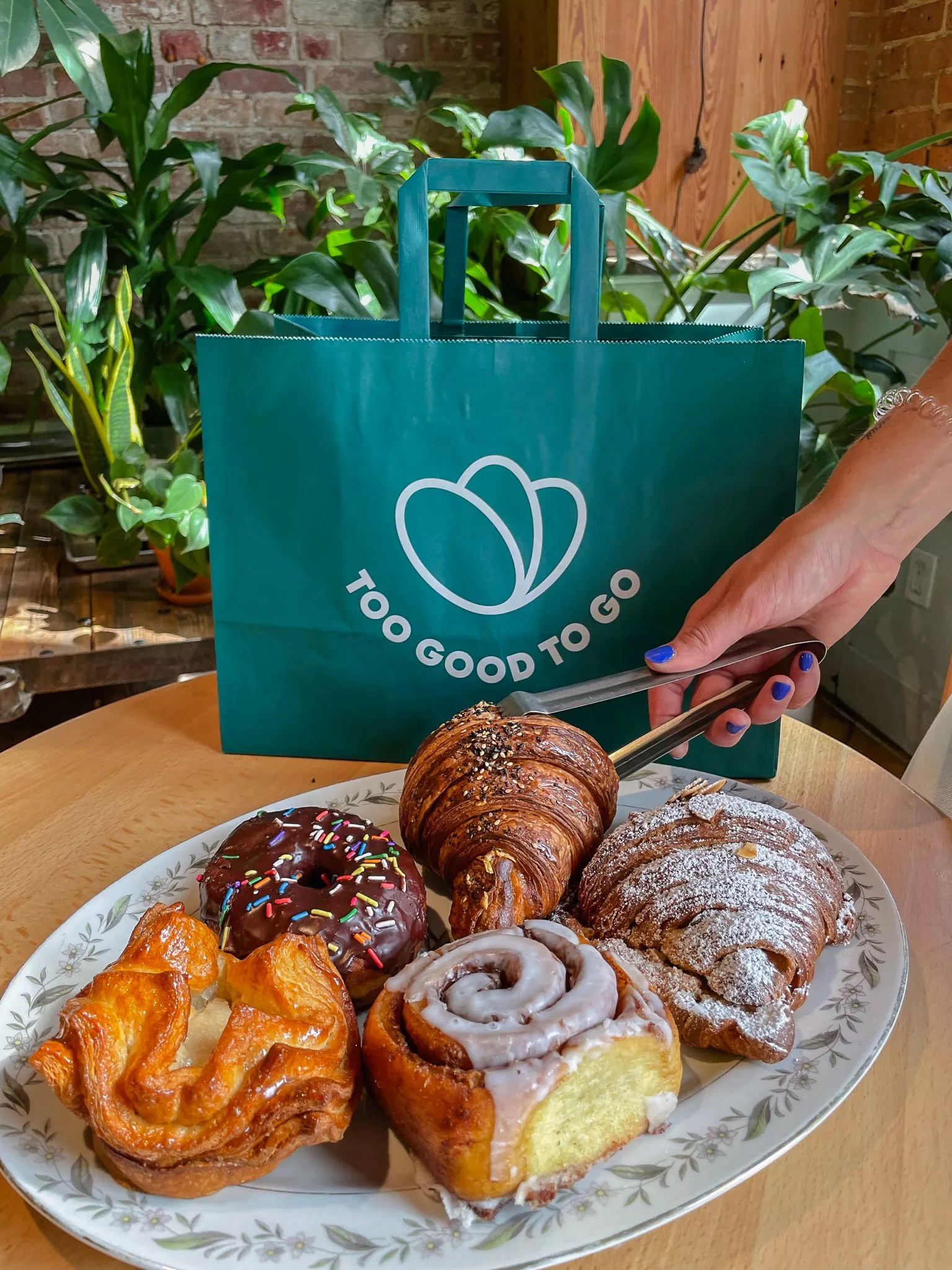
Too Good to Go

Audio By Carbonatix
Too Good To Go is a mobile app that got its start in Denmark in 2016, after one of the founders decided to retrieve food he saw being thrown away at a local grocery store. Its goal is to combat food waste in all food-service sectors by offering surprise bags of surplus items to users, and it’s now live in the Denver market.
“Forty percent of food goes to waste – edible food, food that is perfectly consumable,” says Sarah Soterof, senior public relations manager for the North American branch of the company. According to its 2023 annual report, “We waste 2.8 billion tons of food annually, while 828 million people go hungry every day.”
Too Good To Go uses its platform to address not only food waste, but also the harmful repercussions – specifically, the effect it has in generating greenhouse gases that contribute to climate change.
Businesses like restaurants, grocery stores, markets and gas stations with surplus food can easily create a profile on the app. The business then sets the price (typically one-third of the original retail price), the number of bags available that day and a pickup time frame.
A description provided by the restaurant tells users what to expect in each surprise bag (two pints of ice cream, for example) and sometimes indicates other specifics, like whether the contents are gluten-free or vegetarian. But because of the unpredictability of food waste, specifics are left out.

The mobile app has become popular in cities like New York.
Too Good to Go
For the businesses, there are no requirements for frequency, days or time slots. Customers who purchase a bag are then able to review and rate the experience based on the quality of the service and product they receive.
“It takes about 25 years for a head of lettuce to decompose, and in that time, it creates dangerous CO2 omissions,” notes Soterof. “Food waste accounts for 10 percent of all global greenhouse gases, compared to aviation, which accounts for 1 percent.”
The company, which is B Corp-certified, also reports that “by saving one meal (roughly 2.2 pounds of food), we avoid 5.9 pounds of CO2e emissions, 30.1 square feet of land usage, and 214 US gallons of water. In 2023, we saved 121,686,720 meals…avoiding over 26,000,000,000 US gallons of unnecessary water being used and 362,169 tons CO2e from entering the Earth’s atmosphere. That’s the equivalent of over 57,000 passengers flown around the world.”
Too Good To Go officially launched its North American operations in New York City in August 2020 and has since expanded to 25 cities in fifteen states, with nine more scheduled to go live over the next three months. Currently, there are about 100 supplying stores across Colorado.
Cake Sugar World, a fusion bakery at 2120 South Holly Street that offers Latin-, Italian- and Portuguese-influenced pastries, has been offering surprise bags most Saturdays since January. “We are a small company. We started out last year with the retail store but mostly cater, so we do not know how much is going to be wasted,” Alten says, adding that many of the shop’s offerings, like custom cakes, may not be affordable for everyone. “The people we are getting [from the app] are from different backgrounds. … Knowing that anybody can reach out to get [a surprise bag] and enjoy my recipes, it makes me super happy. Some have even come back as regular customers.”

Apps like Too Good to Go are especially appealing for bakeries, which often have surplus that must be eaten fresh.
Too Good to Go
Local Jones opened inside the Halcyon hotel Cherry Creek in the spring of 2020 – a hard time to be in the restaurant business, let alone to open a place. “People are coming in that have never heard of us before,” says executive chef Daniel Young. “It’s bringing people to the neighborhood.”
Young also runs the hotel’s hidden bar, B&GC, and the banquet program, so surprise bags may contain food from the restaurant, a catering event or even items being tested for a future menu. “It’s beneficial for customers to get a good deal on stuff, and good for us lowering our impact on the environment,” Young notes. “I purposely price everything to recoup losses, so we’re not making money, but we are saving waste and feeling a little bit better.”
Food waste is “one of those parts of the industry that no one likes to talk about,” he adds. Since signing up with Too Good To Go, Young says that Local Jones has saved 95 meals and diverted 237.5 kilograms of CO2 – metrics that are tracked in real time through the app.
A similar app called Goodie Bag developed by CU Boulder graduates launched in the metro area late last year, and offers more of a hyper-local approach. Both apps share the goal of reducing food waste and combating climate change, and ultimately, they’re not in competition, Soteroff says. “We think everyone should be working to reduce food waste.”
Because Too Good To Go operates internationally, it’s been able to develop partnerships with large corporations like Ikea and 7-Eleven, and also allows users to utilize the app in any market where it’s available.
“We are constantly expanding,” Soteroff notes. “Our goal is to be everywhere in the world to reduce food waste everywhere in the world. We really do work vertically across the food chain, because we know food waste occurs everywhere – even at home. We offer tips and tricks, advice on what to do with some of the food you’ve rescued, and how to think differently about food waste.”